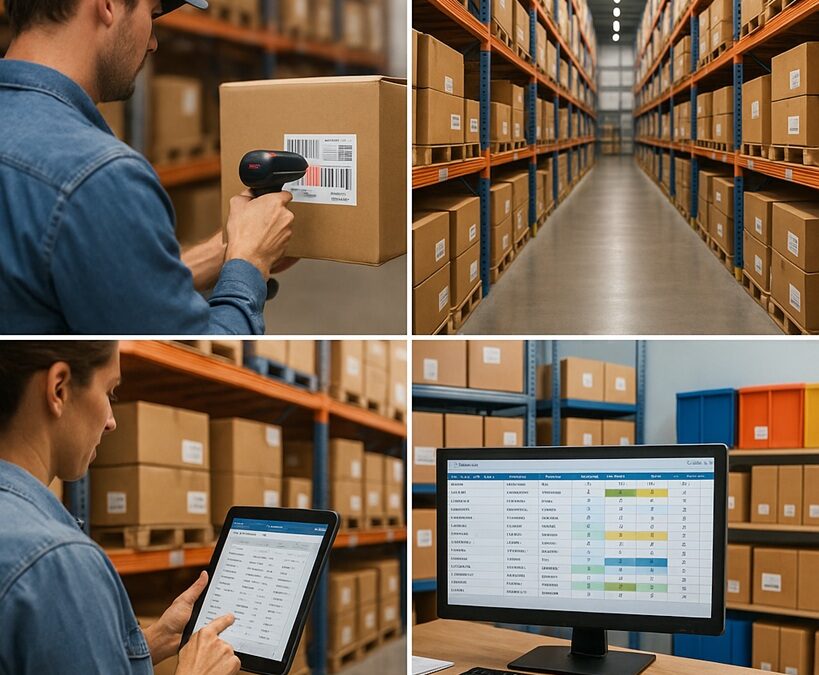Keeping track of what’s in your business storage unit can feel overwhelming, especially if you’re managing large amounts of stock, supplies, or archived documents. Without a proper system, it’s easy to waste time searching for items or accidentally order duplicates. At Newbury Self Store, we’ve seen how a well-organised inventory system can save businesses time, money, and stress. Here’s a step-by-step guide to help you create a system that works for your storage unit and your business.
Why an Inventory System is Essential for Business Storage
When your storage unit is organised and your inventory is well-managed, everything runs more smoothly. You’ll know exactly where each item is and how much you have at any given time. This can be particularly useful for businesses using business storage units to house seasonal stock, marketing materials, or office supplies.
For example, imagine you’re preparing for a busy sales season and need to restock popular products. Without an inventory system, you might find yourself over-ordering certain items while running out of others. With a reliable system in place, you can track your stock levels accurately and make informed decisions.
Steps to Create an Effective Inventory System
Step 1: Categorize and Organize Your Items
Start by grouping similar items together. You might divide your inventory into categories like office supplies, promotional materials, or product stock. If your business requires you to store archived documents, keep them separate from frequently accessed items.
Create zones within your unit for these categories. Shelving or racks can help make the most of vertical space, while bins or boxes can keep smaller items contained. For larger items or pallets, designate a specific area to ensure they’re easy to access without disrupting the rest of your storage.
Step 2: Create a Labelling System
Clear labelling is key to an organized storage unit. Each box, shelf, or container should have a label that indicates its contents. For example, a box labelled “Marketing Materials: Flyers, Posters” is much more useful than a vague “Office Supplies.”
Consider using color-coded labels or alphanumeric tags for quick identification. For even more efficiency, you can add QR codes to your labels that link to digital inventory records. This technology makes it easy to update stock levels or check the contents of a box without needing to open it.
Step 3: Choose the Right Inventory Management Tools
Inventory management can be as simple or as advanced as your business needs. Some businesses may find a spreadsheet sufficient, while others might benefit from specialized software. Here are some options to consider:
- Spreadsheets: Ideal for smaller inventories, allowing you to track item names, quantities, and locations.
- Inventory Management Software: More robust solutions that can integrate with your accounting or ordering systems.
At Newbury Self Store, we recommend choosing tools that match the complexity of your inventory and can grow with your business.
Step 4: Develop a Check-In and Check-Out Process
A simple system for tracking items as they’re added to or removed from your storage unit can make all the difference. Whether you’re storing event materials or shipping products to customers, keeping a record of what goes in and out ensures your inventory stays accurate.
Assigning responsibility for this process to specific team members can help maintain consistency. If your team frequently accesses the unit, consider creating a shared digital log for real-time updates.
Step 5: Conduct Regular Audits
Regular inventory audits are essential for ensuring your records match what’s physically in the unit. Schedule periodic checks to count items and reconcile discrepancies. This is especially important if you’re storing high-value products or sensitive materials.
Audits also help identify trends, such as which items are frequently used or rarely touched. With this information, you can adjust your storage strategy to better suit your business’s needs.
Tips for Optimizing Your Business Storage Unit
Use High-Quality Storage Supplies
Investing in durable boxes, bins, and shelving units will keep your items secure and organized. Our packaging supplies include everything from heavy-duty boxes to protective materials, helping you keep your inventory in excellent condition.
Maximize Space Efficiency
Space is often at a premium in business storage units. Use shelving systems or stackable bins to maximize vertical space, and keep heavier items on the bottom to maintain stability. For awkwardly shaped items, consider adjustable shelving to accommodate varying sizes.
Make Accessibility a Priority
An efficient layout can save you time and effort. Keep frequently accessed items near the entrance of the unit and ensure there’s a clear path to the back. Avoid overpacking, as this can make retrieving items unnecessarily difficult.
The Role of Newbury Self Store in Business Storage
At Newbury Self Store, we understand the unique challenges businesses face when managing inventory. That’s why our business storage units are designed with flexibility and security in mind. Whether you need short-term storage for seasonal stock or a long-term solution for archived documents, our units provide the space and peace of mind your business needs.
We also offer a range of packaging supplies to help you organize and protect your inventory. From boxes to bubble wrap, we’ve got everything you need to set up an effective inventory system.
Streamline Your Business with an Effective Inventory System
Taking the time to organize your storage unit and implement an inventory system can transform the way your business operates. From saving time and reducing errors to making smarter purchasing decisions, the benefits are clear.
Explore our business storage options and discover how Newbury Self Store can help you create an inventory system that works for your needs. Ready to get started? Our How to Book page makes it easy to find the perfect storage solution for your business.


